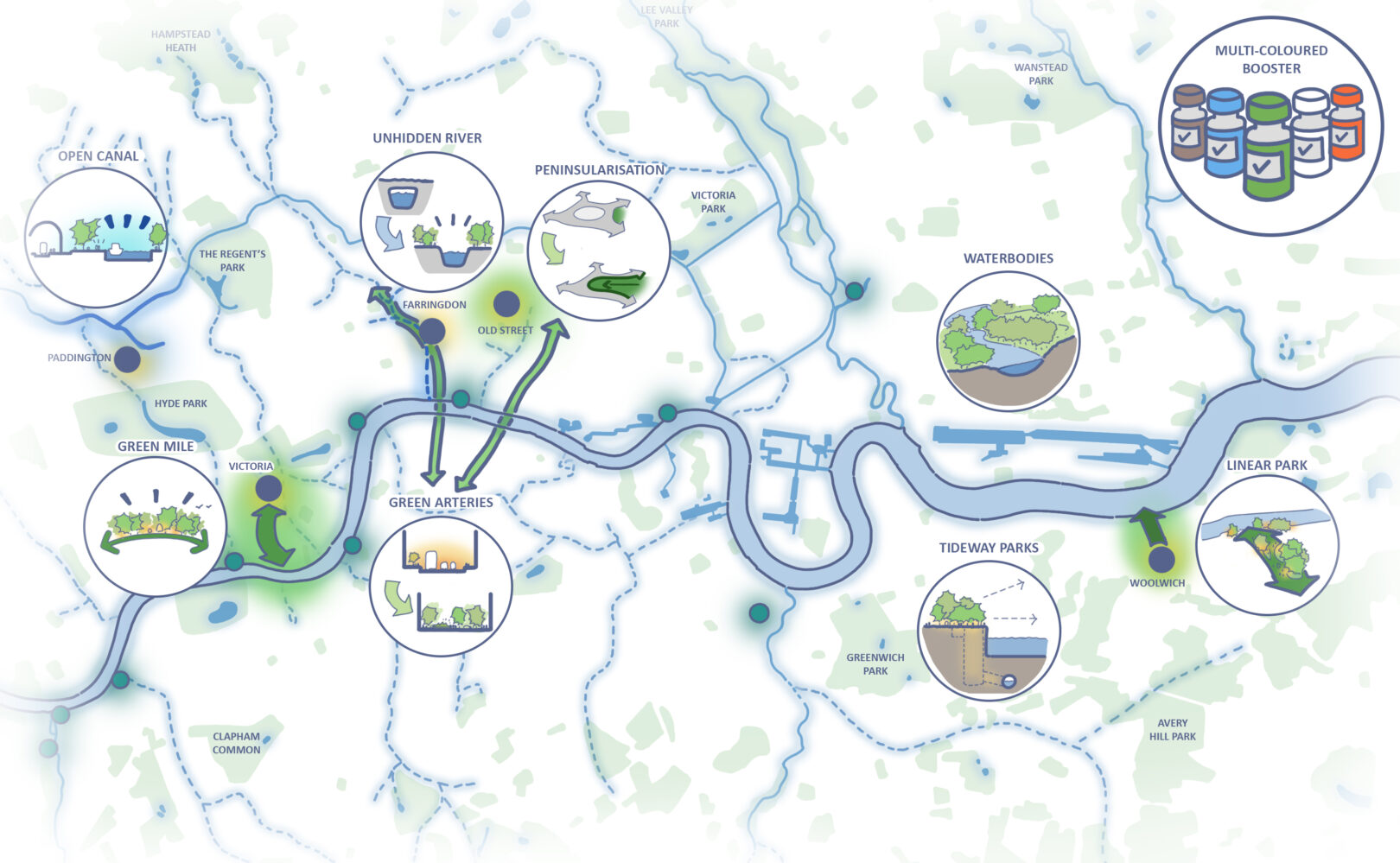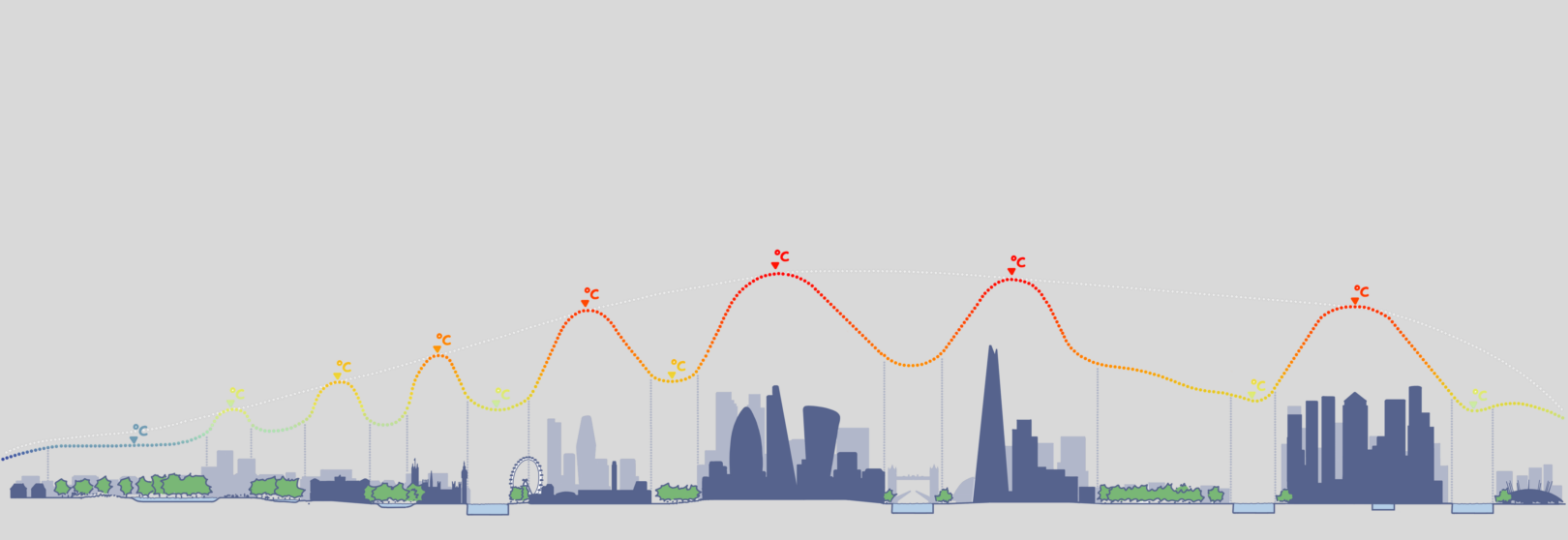Boosting London’s Immunities to Sustain its Cool Communities

Rob Buckley
Rob Buckley joins from Buro Happold, where he was their Building Environments Sustainable Design Director. Rob is an industry leader in the application of net zero carbon strategies and circular economy principles in response to the climate emergency. With over 25 years’ experience in sustainability spanning across the globe, Rob has proven track record of implementing decarbonisation strategies in the dynamic international commercial environment. From lecturing in sustainable design at Stanford University, to green conference keynote speaking, Rob thrives on sharing his experience to inspire change in bringing a truly global approach to this global challenge.
Ten years ago, when we woke up to the realisation that we are hindering mother nature in her quest to regulate the planet, our multilateral response, was the Paris Climate Agreement with commitment to an overarching goal “to limit the temperature increase to 1.5°C”. In turn, the built environment responded with colourful roadmaps to net zero, but with zero implementation governance, greenwash ran amok, and in the interim, little headway made. Last month, with commitments unfulfilled, the BBC reported the “World’s first year-long breach of key 1.5°C warming limit”.
Heat Sponge
With the climate changed, and the globe warmed, cities are on the front line in the battle to keep their cool. London, portrayed as dynamic and vibrant, is becoming the climate victim of its own success. London continues to attract hot humans, demanding their own little pieces of artificial urban. This contributes to London’s ballooning solar catchment and makes the all-consuming hipsters even hotter!
Technical Reflection
The summer satellite view of the London is of soil sealed concrete jungles, hot tin roofs, and grids of blacktop. These solar exposed surfaces are intense heat absorbers, but lousy heat reflectors, trapping heat inside its urban fabric. To compound this direct solar roasting, anthropogenic heat, the result of human behaviour, is driven into the city in the form of sizzling steel car bodies, outside power is pumped into feed city computers demanding that air conditioning units dump their off heat into the stifling external atmosphere.
The narrow street canyon forms that inhibit breezeway purge and restrict nightsky cooling fester in rebounding heat and trap air pollution. The cascading consequences of this urban heat phenomenon is climate drought, with a resulting shrinkage in green spaces, water bodies, and water courses, the very landscapes that mitigate heat build-up.
The Multi-Coloured Cocktail Boosters
To address climate unpredictability and impact inequality this people centre nature-based approach is holistic, inclusive, and adaptive. A blend of multi-coloured resilience shots provides a tailored cocktail of acclimatisation booster strategies that can be integrated with the London net zero carbon approach.
Red Booster Shots are preventative measures to stop fuelling the fire:
- London Urban Heat Island Effect (UHIE) mitigation no vehicle zone
- Hot data processing exclusion zone by outboarding mainframes
- Push peripheral e-parking to trigger behavioural modal shifts to mass transit
Green Booster Shots reclaim green earth patches that shade and extract heat from the air:
- Repurposing London’s defuncted arterial roads as green spines and linear parks
- Injecting green roofs and pocket parks as catalyse hubs for green networks
- Strategic insertion of green fingers to channel cooling breezes to purge hot spots
Blue Booster Shots reclaim blue planet waterways that sink heat and carry it away
- Expose London’s subterranean hidden rivers to carry atmospheric heat out to sea
- Create waterbodies to absorb heat island radiation and sweat it away
- Integrate canals into the urban fabric to transport heat out of the city
Black & White Booster Shots paints a reflective coat over the residual urban fabric:
- Apply cool roof high-albedos material wraps for all of London’s inactive roofs
- Resurface all absorbent public realm hardscapes with reflective coatings
- Retract London’s urban fabric envelope for a nightsky purge cool recharge
Based on a fortuitous degree of inherent resilience, London’s climate destiny has yet to be written. As a global leader in climate change mitigation, London should seize this opportunity to show the world how interventions for adaptation and resilience can boost a cities climate immunity to sustain and enhance its cool communities.

Rob Buckley
Rob Buckley joins from Buro Happold, where he was their Building Environments Sustainable Design Director. Rob is an industry leader in the application of net zero carbon strategies and circular economy principles in response to the climate emergency. With over 25 years’ experience in sustainability spanning across the globe, Rob has proven track record of implementing decarbonisation strategies in the dynamic international commercial environment. From lecturing in sustainable design at Stanford University, to green conference keynote speaking, Rob thrives on sharing his experience to inspire change in bringing a truly global approach to this global challenge.

